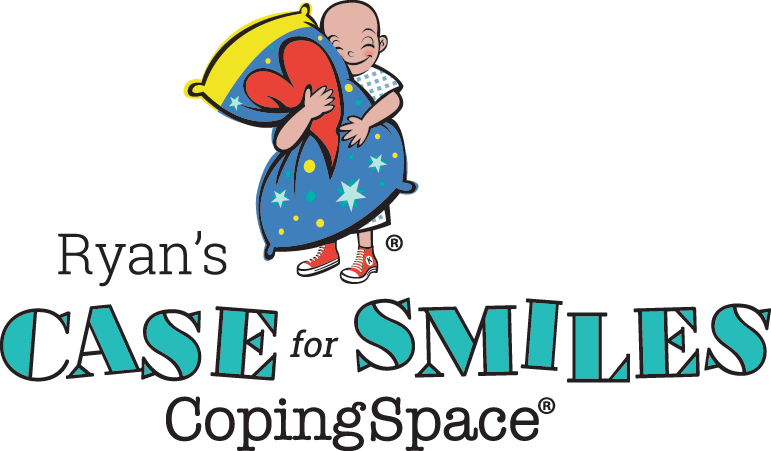BLOG
Finding Words When Words Aren’t Enough—Describing the Sibling Grief Experience
Lynn Shattuck / January 23, 2021
 I was browsing Facebook the other day when I came across this question on a page I follow: What is the one thing you wish people had said to you after your brother or sister died?
I was browsing Facebook the other day when I came across this question on a page I follow: What is the one thing you wish people had said to you after your brother or sister died?
I thought about the question for a full day, letting it hum and settle in the back of my mind. I’ve spent plenty of time considering all the things I wish people hadn’t said to me when my brother died, like, “Be strong for your parents.” Or, “Please tell your mom how sorry I am—how’s she doing?”
It’s harder to dig deep and find the words that might’ve helped me in those raw days after my brother died. As a writer and a big reader, I put a lot of stock in the power of words, but I’m not sure that even words have enough magic to soothe the pain of fresh grief.
Grieving the Death of a Sibling
I was 24 when my brother Will died. He was 21. It’s been more than 20 years now, and I’ve built a life around my grief. But in the early days and months, I couldn’t imagine how I’d survive. The pain of losing my brother was more intense than anything I’d felt before. My loss was physical, a deep throb in my chest, a swirl of panic in my belly that would only settle after a good cry.
There was nothing I could reach for to ease it, except maybe the slow drip of time.
The loneliness of my brother’s death was overwhelming. My brother had been my rival, a pest, the co-keeper of my childhood, and finally, as we edged out of adolescence, my friend. We were supposed to get a lifetime together. My friends were supportive, but they were also young adults, immersed in the things young adults do—dating, traveling, going to school, working, launching their lives.
My life, meanwhile, had been interrupted—I’d moved back home with no romantic or career prospects on the horizon. My parents were suffering incredibly, and the only other person who could understand what witnessing their agony might feel like was my brother—whose death had created this pain.
How to Help Someone Who’s Lost a Sibling
 Perhaps there simply aren’t adequate words when someone we don’t think we can survive without dies. But looking back, I think that simple acknowledgments might’ve helped. Siblings are sometimes referred to as the invisible or forgotten mourners. I’m a mother now, and I can understand why people focused mostly on my parents after my brother died. Losing a child is terrible, and something no parent should have to endure. But losing a brother or sister is incredibly impactful, too. My parents, after all, were still parents—I sometimes wondered whether I was still a sister now that my only sibling was gone.
Perhaps there simply aren’t adequate words when someone we don’t think we can survive without dies. But looking back, I think that simple acknowledgments might’ve helped. Siblings are sometimes referred to as the invisible or forgotten mourners. I’m a mother now, and I can understand why people focused mostly on my parents after my brother died. Losing a child is terrible, and something no parent should have to endure. But losing a brother or sister is incredibly impactful, too. My parents, after all, were still parents—I sometimes wondered whether I was still a sister now that my only sibling was gone.
At the time that Will died, there weren’t even any books on the topic of adult sibling loss. Hearing something like, “This must be so hard,” may have helped—or at least not have hurt. One sensitive friend told me, “I think I’d go crazy if something happened to my brother.” Her words soothed me, because they were soaked in pure empathy rather than platitudes. They made me feel less invisible, less alone.
Sibling Loss: The Loss of a Lifetime
The hole where Will existed remains—it will always be there. I won’t ever stop wishing he were here or wondering what kind of uncle he’d be to my kids. When my dad died last summer, I grieved for my brother, too. He should’ve been there, walking through the grim milestone alongside me.
As a worshipper of words, perhaps it also would’ve helped to have a name for what I experienced after Will died. When we lose our parents, we’re orphans. When a spouse dies, we become widowed. “Bereaved sibling” sounds so clinical, so formal, so unlike the relationship most of us experience with our brothers or sisters. I’ve dubbed sibling loss, “the loss of a lifetime.” When a sister or brother dies, we lose our connection to the past, as well as the stretching future we thought we’d have together. Who else do we expect to spend our entire lifetimes with but our siblings?
Maybe that phrase would’ve been something to hold onto during the most intense loneliness of my grief. Or this: You will get through this, but you won’t get over it. It will hurt forever, but you will learn to live with the ache. Your grief is your love, turned inside out, and it will twist and bend and linger for a lifetime—just like your brother should’ve.
About the Author: Lynn Shattuck grew up in a Southeast Alaskan rainforest and is now a Maine-based writer. Lynn is currently working on a memoir about her brother’s death. To read more of her work, visit her website at http://thelightwillfindyou.com/ or sign up for her mailing list.
**Statements on this blog reflect the author’s personal opinion and do not represent the views of Ryan’s Case for Smiles. They are also not to be viewed as personal medical advice, but rather for the purpose of general knowledge. The reader should speak to their healthcare team, or their child’s, for medical advice.**
